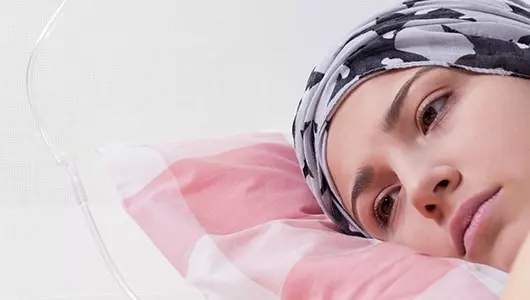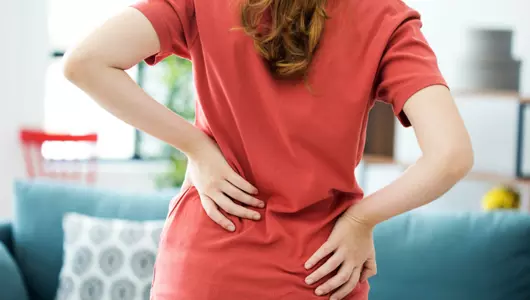
Unlock natural healing power with acupuncture
Tired of chronic pain holding you back? Looking for natural ways to boost your well-being? Acupuncture can help. This traditional Chinese medicine practice, backed by modern science, uses hair-thin needles to stimulate your body's natural healing abilities.
Katherine O’Rourke, DO, Osteopathic and Family Medicine, explains how acupuncture can:
- Ease chronic pain
- Promote health and well-being
- Help treat various medical conditions
What is acupuncture?
Acupuncture is a holistic healthcare practice that involves inserting hair-thin needles into specific points of your body. This stimulates your body's natural healing abilities and promotes your physical and emotional well-being. Acupuncture is a safe and often effective complement to conventional treatments. We call this integrative medicine.
Does acupuncture work?
Yes. Most patients find acupuncture to be a great way to manage their pain without the need for medication or the risk of adverse side effects, Dr. O’Rourke said.
Patients enjoy coming for acupuncture and I enjoy being able to help them with their pain in a non-medicinal way.
As with any medical approach, acupuncture doesn't work for everyone or every condition.
Benefits of acupuncture
Acupuncture promotes your health and well-being and treats medical conditions. Many people like you find acupuncture relieves chronic pain stemming from:
- Arthritis
- Carpal tunnel
- Fibromyalgia
- Menstrual cramps
Our experienced providers also use acupuncture to target:
- Back and neck pain
- Nausea from anesthesia or chemotherapy
Can acupuncture treat medical conditions?
Yes. The World Health Organization (WHO) recognizes acupuncture as a treatment option for a wide range of medical conditions, including:
- Respiratory disorders: sinus infections, common colds, tonsillitis, sore throats, bronchitis and asthma
- Disorders of the mouth: toothaches, pain from tooth extraction and inflammation of the gums
- Orthopedic disorders: tennis elbow and rheumatoid arthritis
- Digestive disorders: gastritis, ulcers, colitis, complications of stroke, constipation and diarrhea
- Neurologic disorders: headaches, migraines, balance problems, ringing in the ears and bladder dysfunction
- Gynecologic conditions: painful menstruation, irregular periods, infertility and menopausal symptoms. It’s also used for nausea in early pregnancy or to stimulate labor and turn breech babies to a head-down position.
- Physical problems related to tension, stress and emotional conditions
Acupuncture can treat other medical conditions. Reach out to your provider to see if acupuncture may be a treatment option for you.
How long do acupuncture benefits last?
That depends on the person and condition treated. Generally, acupuncture requires several sessions to achieve long-lasting results.
How often should I visit for acupuncture?
The number of acupuncture treatments you’ll need depends on the complexity of your condition. Your provider will track your progress and adjust your treatment plan until you get the desired results.
Needles make me uncomfortable. Does acupuncture hurt?
Acupuncture needles aren't like those used for vaccines or blood draws. Acupuncture uses hair-thin needles that you may not feel or see during insertion. Most people don't experience pain or discomfort during treatment.
How much does acupuncture cost? Is acupuncture covered by insurance?
That depends on your healthcare plan. Before you start treatment, it’s important to find out whether your plan covers acupuncture for your condition and to what extent. Medicare covers acupuncture for those with a diagnosis of chronic lower back pain.
Is acupuncture right for me?
Schedule a consultation for acupuncture with Dr. O’Rourke at Gundersen’s Hillsboro Clinic or with Jill McMullen, MD, at Gundersen’s Tomah Clinic.
Related articles

Gundersen St. Joseph's Hospital offers complementary treatment options for those with PTSD

Tips for managing nausea, vomiting after treatment

5 ways to help everyday aches and pains
